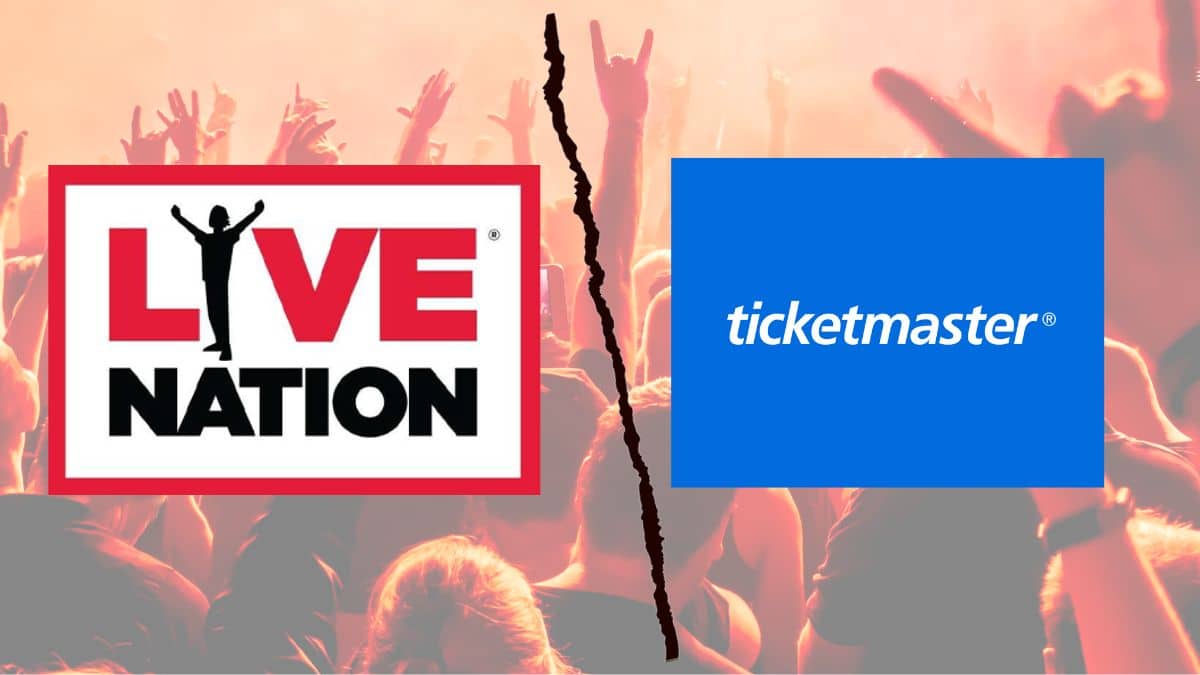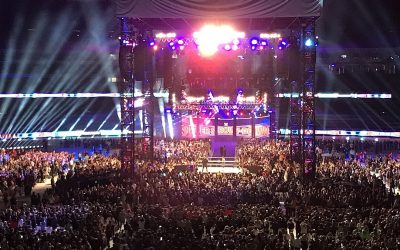The U.S. Department of Justice, joined by 40 states and the District of Columbia, has asked a federal judge to split its antitrust case against Live Nation Entertainment and Ticketmaster into two distinct stages: one jury trial to determine liability, followed by a bench trial addressing remedies and damages. The request, filed in the U.S. District Court for the Southern District of New York, argues that separating the proceedings would streamline the complex case and respect the states’ constitutional right to a jury trial on claims that include monetary relief.
READ MORE: Memorandum on Motion to Bifurcate (PDF Opens in New Window)
Live Nation has not yet responded to the motion to bifurcate the case. It has until May 12 to file its response – its attorneys requested a two week extension on that, but Judge Arun Subramanian denied that request on Tuesday after the plaintiffs argued that they already had ample time to develop their response to the request, and delaying it further would impact discovery and depositions for the ongoing case.
In their memorandum supporting bifurcation, plaintiffs say they seek “a jury trial on liability for all claims, and a bench trial on equitable remedies and damages, after limited additional discovery.” They argue that such a division would help cut costs, focus the evidence presented to the jury, and minimize confusion if only certain parts of the case are ultimately successful.
“The factual issues presented by state plaintiffs’ jury-triable claims overlap substantially with the equitable claims asserted by all plaintiffs, and thus all plaintiffs are entitled to have a jury decide those common issues,” the filing states. “As the Supreme Court, the Second Circuit, and federal courts across the country have repeatedly held, the right to a jury trial as to all common issues is inviolable.”
The government and state plaintiffs brought this case under the Sherman Act as well as parallel state antitrust laws. The U.S. Department of Justice is seeking only equitable relief, aiming to prevent what it characterizes as a pattern of monopolistic behavior by Live Nation and Ticketmaster. However, the states are also seeking monetary penalties and damages, which they say triggers their right to a jury for all core facts underpinning the alleged violations.
Live Nation and Ticketmaster, which merged in 2010, have long faced scrutiny over their market dominance in ticketing, promotions, and venue operations. Critics contend that the combined firm uses exclusivity clauses and other practices to stifle competition, forcing venues, artists, and consumers into less favorable terms. Live Nation and Ticketmaster have denied wrongdoing, calling the claims unfounded.
If the judge grants the bifurcation request, a single jury trial would determine whether the companies illegally monopolized primary ticketing services or otherwise violated antitrust laws. Only if they are found liable would a second, judge-led phase address the scope of potential remedies—which could include structural changes, injunctive relief, or monetary penalties under state law.
The DOJ and states also push back against the possibility of trying liability multiple times—once for the United States’ equitable claims and again for the states’ damages demands—saying such “trifurcation” would be costly, time-consuming, and could jeopardize the states’ constitutional rights.
“Bifurcation of liability and remedies is the optimal trial structure,” the memorandum asserts. “It would simplify issues for the jury and the Court, economize expert and other costs for the parties, and result in efficiencies for all involved.”
Observers say a ruling to split the trial would expedite the liability phase, allowing both sides to focus on the question of whether the entertainment giant’s practices violate antitrust laws, without requiring immediate deep dives into potential remedies. Any final resolution could have sweeping consequences for the live event and ticketing industry, potentially altering longstanding contract practices between venues, promoters, artists, and ticketing providers.
Live Nation is also currently facing a consumer class action antitrust lawsuit – which seeks damages based on claims that consumers have faced inflated prices due to Live Nation/Ticketmaster’s market dominance and efforts to eliminate competition. A motion to have that case dismissed was denied earlier this month.




